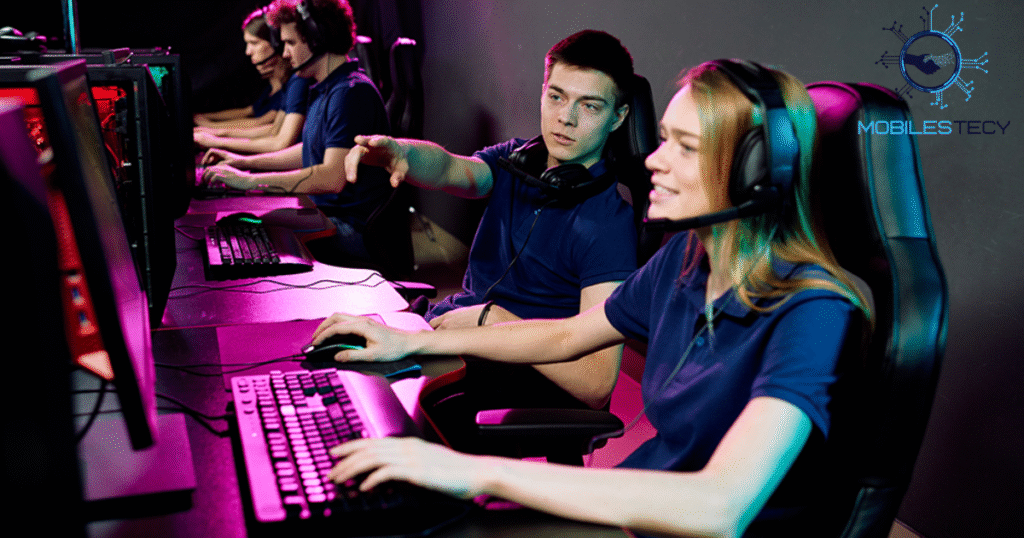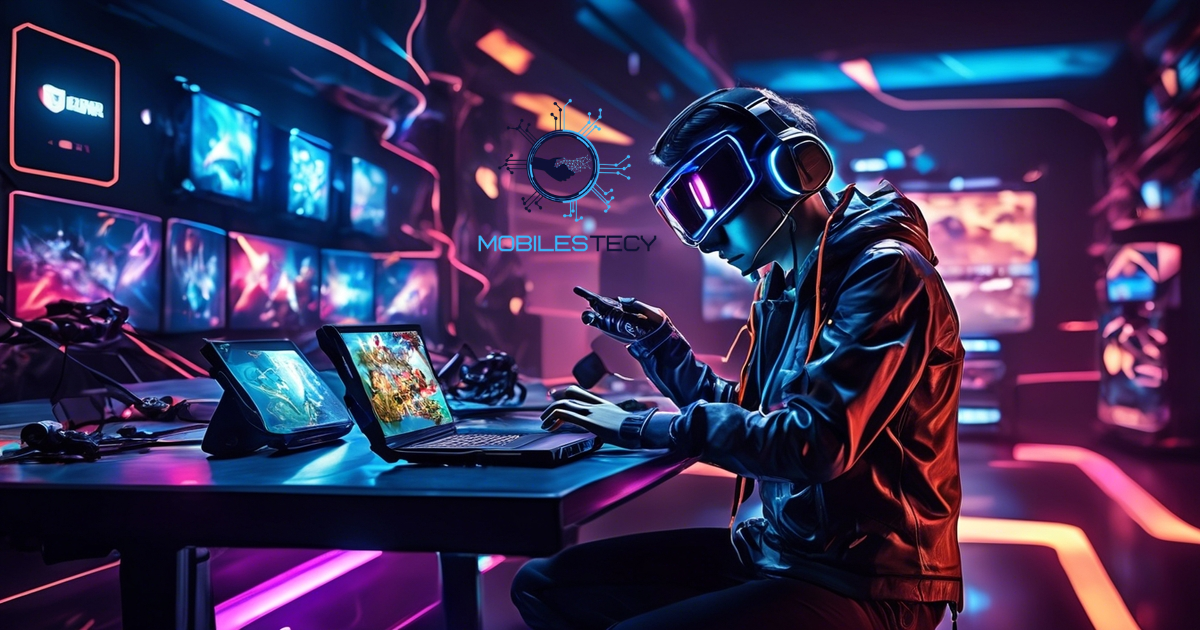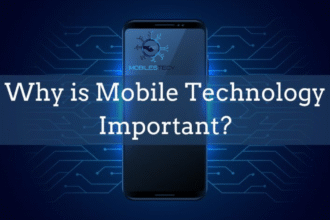The gaming industry has transformed dramatically, evolving from simple pixels into breathtaking realities. Modern gamers now enjoy advanced storytelling, immersive graphics, and interactive multiplayer worlds. With every new innovation, technology continuously redefines how entertainment experiences are delivered. Developers and players alike witness gaming advancing into something more expansive daily.
Artificial Intelligence, Virtual Reality, and blockchain are shaping gaming’s exciting future. These technologies promise immersive gameplay, smarter environments, and broader accessibility worldwide. From consoles to mobile devices, innovation drives how communities connect globally. Gameplay no longer stands as simple pastime, but a lifestyle choice. The future of gaming appears limitless, powered by continuous technological breakthroughs.
As boundaries between digital and physical realities blur, opportunities grow rapidly. Gamers soon experience worlds indistinguishable from reality through next-generation immersive tools. Cloud gaming platforms ensure accessibility, eliminating reliance on expensive physical hardware. 5G networks and advanced connectivity expand access to millions of global players. The future promises revolutionary growth, merging creativity, technology, and human imagination.
Table of Contents
Artificial Intelligence Shaping Smarter Game Worlds

Artificial Intelligence is transforming how characters interact within complex virtual environments. NPCs now learn from players, adapting behaviors instead of following predictable scripts. This creates immersive experiences where every choice significantly alters game progression. Players enjoy tailored encounters, making each adventure unique and deeply personal.
Procedural generation powered by AI designs massive landscapes without manual human effort. Developers can build endless terrains, dungeons, or quests at remarkable efficiency. Players receive fresh challenges consistently, ensuring games never feel repetitive. AI-driven engines push creative possibilities beyond imagination, shaping vast open universes. This efficiency helps studios save resources while expanding innovation opportunities globally.
AI also personalizes difficulty, ensuring players remain engaged without feeling overwhelmed. Games adjust challenges in real time, matching skill levels dynamically. This responsiveness ensures enjoyment for beginners and experienced players alike. Future gaming promises smarter enemies, believable allies, and adaptive storytelling systems. Such advancements redefine immersion, transforming games into ever-evolving personal adventures.
Virtual Reality and Augmented Reality Transforming Immersive Experiences
Virtual Reality transports players into digital realms, creating lifelike sensory experiences. Headsets provide visual immersion while haptic devices simulate touch and movement. As technology advances, realism increases, blurring boundaries between reality and imagination. Players soon feel environments, textures, and atmospheres within entirely digital landscapes. This immersive future ensures gaming feels authentic, emotional, and fully interactive.
Augmented Reality overlays digital elements onto real environments, merging both dimensions. Games expand into streets, homes, or workplaces, enhancing everyday experiences. Players collaborate or compete through shared spaces visible using AR glasses. This combination brings communities together, offering entertainment seamlessly integrated with reality. Augmented play extends beyond fun, influencing education, work, and social communication.
Future VR and AR promise lightweight devices with greater comfort and usability. Current bulky hardware gradually disappears as technology advances toward sleek designs. Enhanced sensors will eliminate motion sickness, enabling longer immersive play sessions. Gamers will freely explore fantasy realms while remaining physically safe and active. These advancements redefine entertainment, creating new possibilities for social and creative engagement.
Blockchain and Play-to-Earn Innovations

Blockchain introduces ownership, allowing gamers to trade and monetize digital assets. Players secure items as NFTs, ensuring transparency across multiple gameplay platforms. This technology empowers gamers economically, transforming hobbies into potential income sources. Virtual assets now carry real-world value, reshaping entertainment and digital economies.
Play-to-earn models attract millions seeking opportunities through decentralized virtual ecosystems. Gamers participate in tournaments, quests, and marketplaces generating sustainable online incomes. Developers encourage creativity, enabling users to build businesses within immersive worlds. Blockchain ensures fairness, security, and limitless opportunities in future gaming landscapes.
Cloud Gameplay and 5G Expanding Global Accessibility
Cloud technology eliminates expensive hardware, streaming high-quality games directly to devices. Gamers worldwide access advanced titles without needing powerful consoles or computers. This democratization ensures inclusivity, letting more players enjoy premium entertainment. Seamless updates, instant access, and affordability drive global cloud gaming adoption. Such accessibility reshapes the industry, expanding opportunities for developers and audiences.
Mobile devices gain advanced capabilities through cloud streaming powered by strong servers. Players enjoy console-quality experiences on smartphones, tablets, or lightweight laptops. This flexibility allows gameplay anywhere, enhancing convenience and portability significantly. Developers expand markets by reaching wider audiences across diverse global regions. Cloud technology ensures gaming becomes universal, removing physical limitations entirely.
5G networks accelerate this revolution, offering low latency and faster connections. Online multiplayer becomes smoother, ensuring fairness in competitive gameplay environments. Gamers in remote regions gain access to experiences previously inaccessible. 5G expands esports, mobile gaming, and shared digital events across continents. Connectivity ensures gaming evolves into a truly borderless global entertainment industry.
Esports and Social Connectivity in Gameplay

Esports is rapidly growing, rivaling traditional sports in audiences and revenue. Global tournaments attract millions, creating professional opportunities for skilled players. Fans connect virtually, celebrating games as cultural events transcending physical boundaries. Technology enhances viewing, offering interactive experiences beyond simple live streaming.
Gaming communities flourish, connecting people across continents through shared virtual interests. Platforms provide lounges, chatrooms, and arenas for collaborative social interaction. Spectators soon enjoy holographic matches and immersive viewing using VR headsets. These experiences strengthen gameplay identity as both entertainment and global lifestyle.
The Metaverse and Future Virtual Societies
The metaverse unites games, social networks, and economies into persistent universes. Players explore shared spaces, collaborate, trade, and socialize within virtual societies. This interconnected reality expands beyond entertainment, shaping business and educational opportunities. Future generations may spend significant time living within these expansive digital realms.
Metaverse innovation transforms gameplay into creative expression and entrepreneurial ventures. Artists, developers, and users build immersive experiences with endless possibilities. Interoperable systems allow assets to transfer freely between diverse gaming platforms. Such evolution highlights gaming’s power as culture, economy, and futuristic ecosystem.
- Artificial Intelligence creates smarter characters and adaptive storylines for players.
- Virtual Reality delivers immersive sensory experiences with lifelike visuals and interactions.
- Cloud gaming removes hardware barriers, streaming advanced titles to all devices.
- Blockchain secures ownership, letting gamers monetize digital assets through NFTs.
- 5G connectivity ensures seamless global gameplay with ultra-low latency connections.
Faq’s
How will Artificial Intelligence change future gameplay experiences globally?
AI creates smarter NPCs, adaptive storylines, and dynamic personalized challenges. Players enjoy unique worlds shaped directly by their individual gaming decisions.
Will cloud gameplay completely replace traditional consoles and gaming PCs?
Cloud streaming reduces hardware dependency, making premium games universally accessible. However, consoles may remain for enthusiasts who value physical gameplay systems.
How does Virtual Reality differ from Augmented Reality in gameplay?
Virtual Reality immerses players in complete digital environments with sensory depth. Augmented Reality overlays game elements directly onto real-world surroundings seamlessly.
Can blockchain and play-to-earn models generate sustainable player income?
Yes, blockchain enables ownership of assets with real-world trade opportunities. Play-to-earn gameplay creates new economies, supporting communities with financial potential.
What role will 5G networks play in gameplay rapid evolution?
5G ensures faster, smoother gameplay with minimal latency for online competition. It expands mobile gameplay opportunities, enhancing accessibility across global gameplay markets.
Conclusion
The future of gameplay stands as a testament to technological evolution. Artificial Intelligence, Virtual Reality, and cloud platforms redefine immersive entertainment. These innovations ensure gameplay becomes smarter, interactive, and globally accessible. Players gain opportunities to explore digital realms beyond traditional physical limitations. Gaming transforms into culture, lifestyle, and futuristic social-economic ecosystem worldwide.
Cloud technology and 5G connectivity eliminate entry barriers for global players. Anyone with devices can enjoy premium gaming without expensive hardware. This inclusivity drives diverse participation, strengthening communities across digital landscapes. Enhanced accessibility expands markets, encouraging developers to innovate more consistently. The gameplay industry benefits economically, culturally, and socially through widespread engagement.
Blockchain, esports, and metaverse growth highlight gaming’s powerful new direction. Players earn, create, and socialize within persistent virtual universes effectively. Communities thrive, building businesses, relationships, and experiences inside digital worlds. Future gameplay connects imagination and reality in seamlessly integrated ecosystems. The journey ahead promises limitless creativity, opportunities, and transformative entertainment.
Read more latest Articles on Mobilestecy.com








